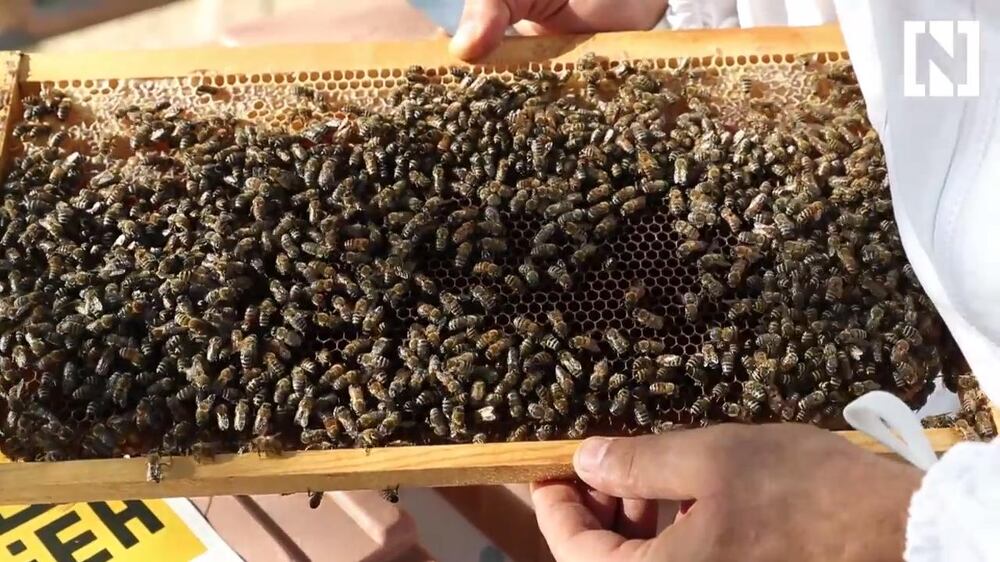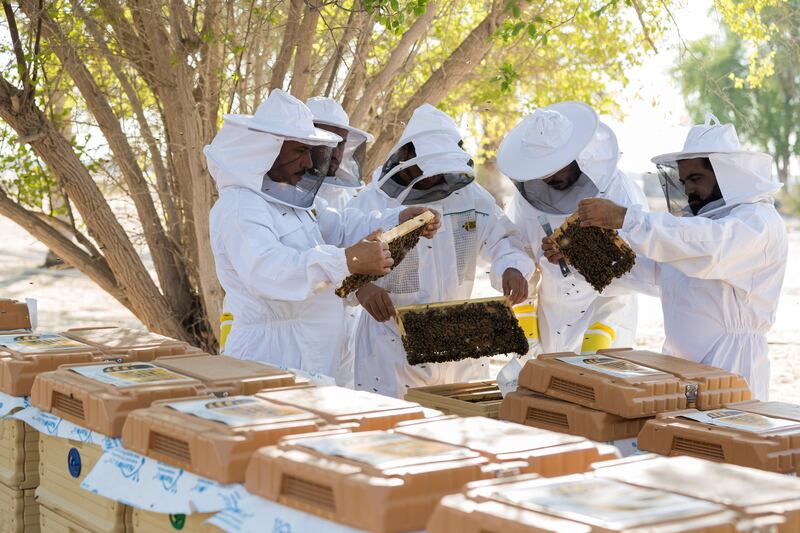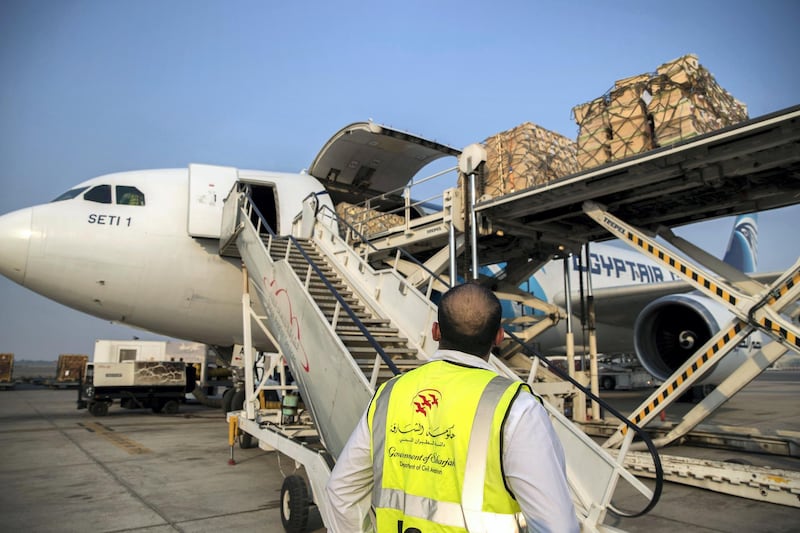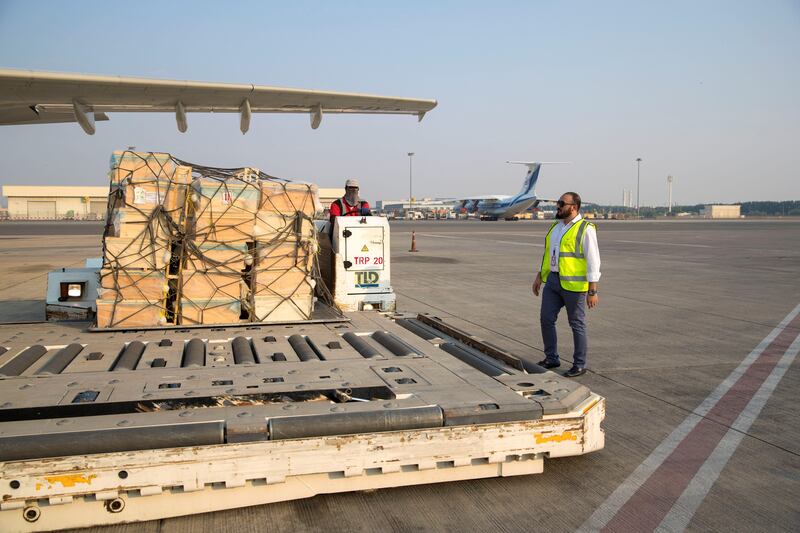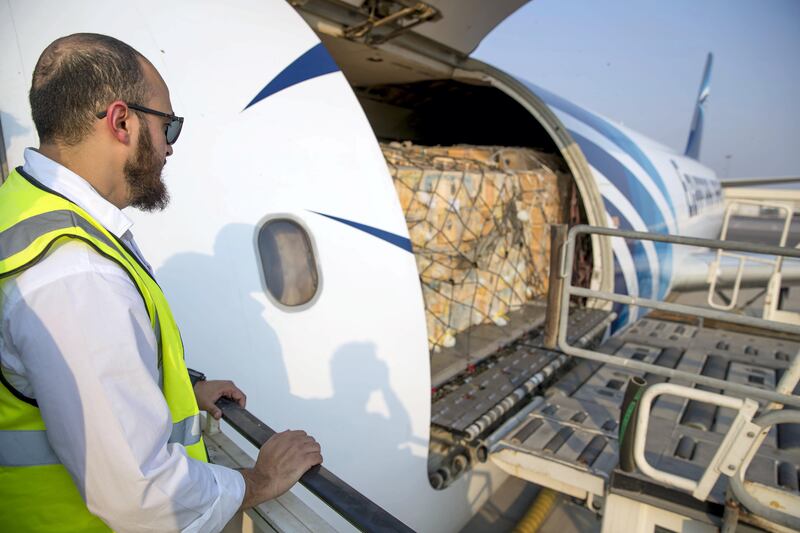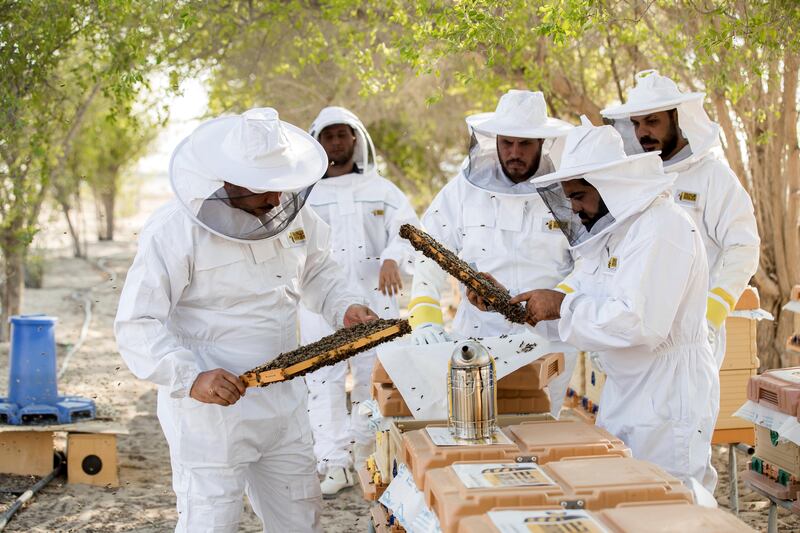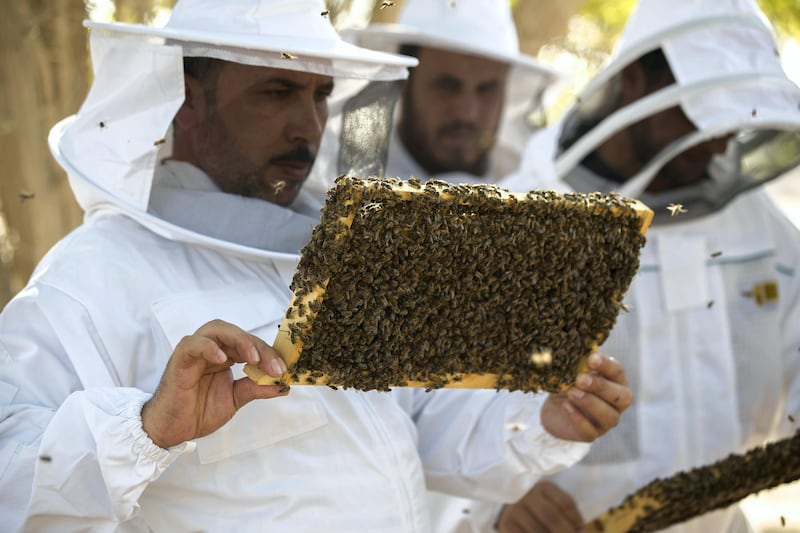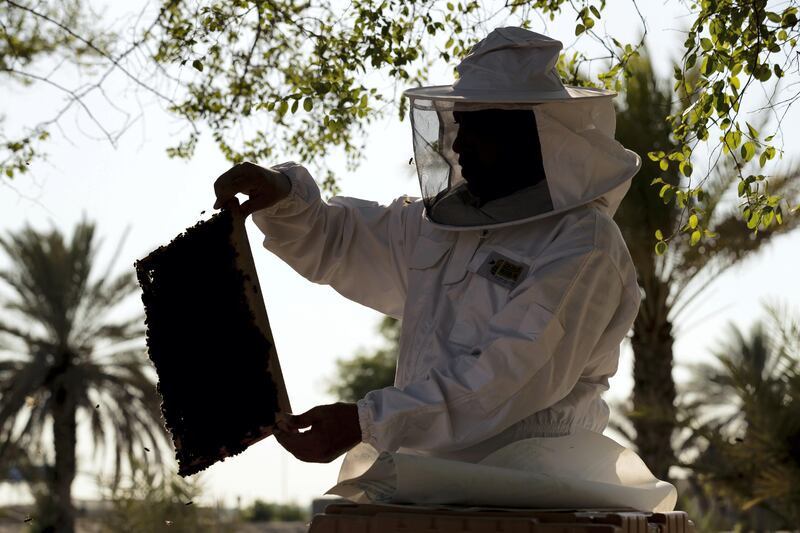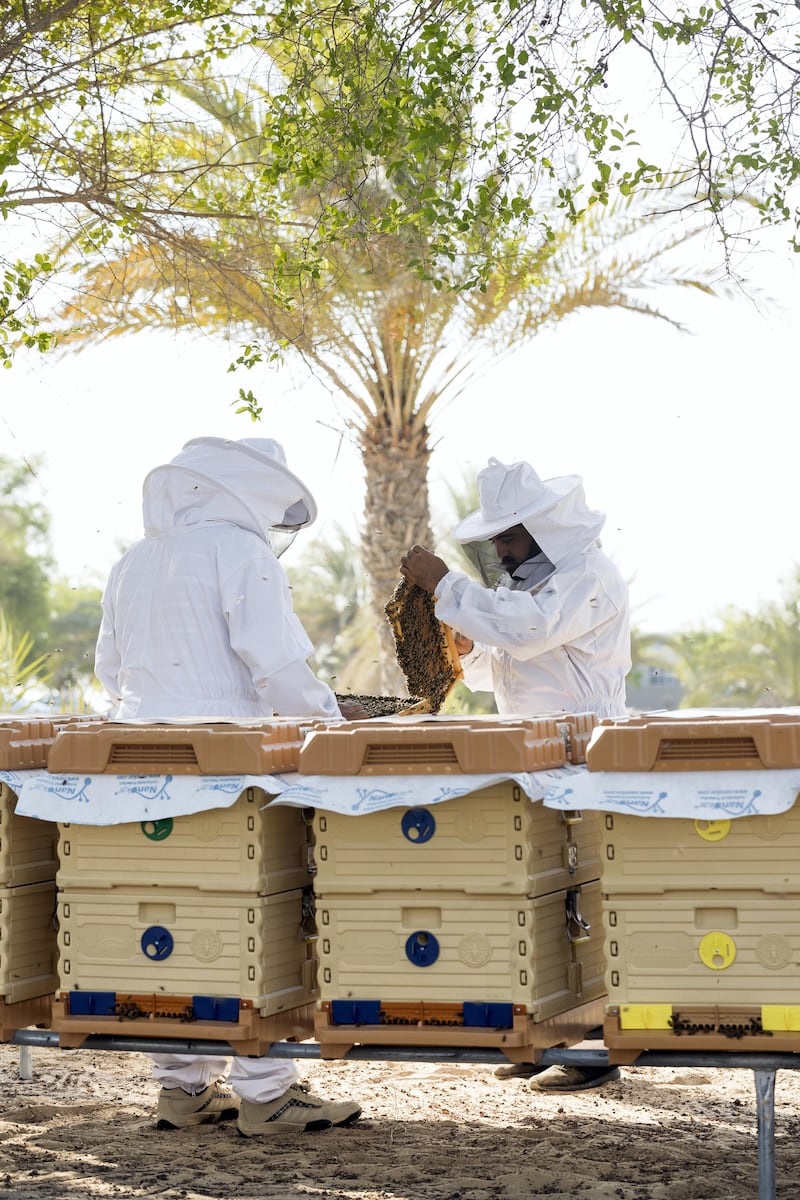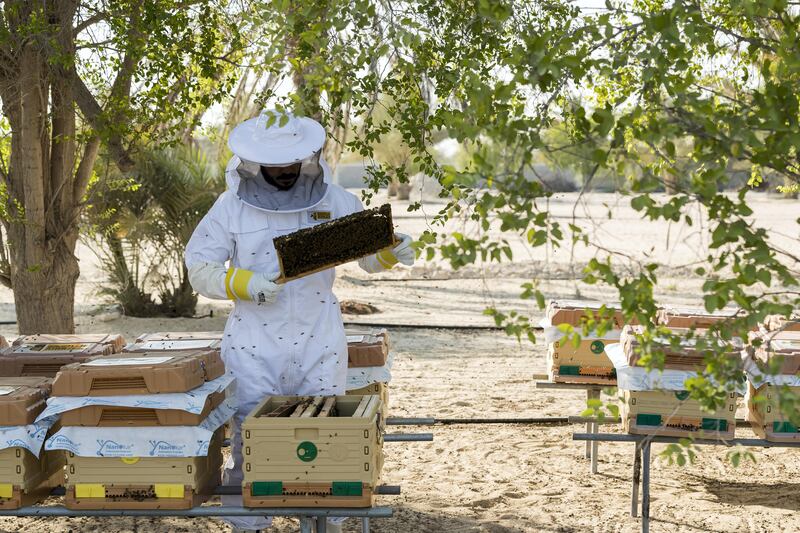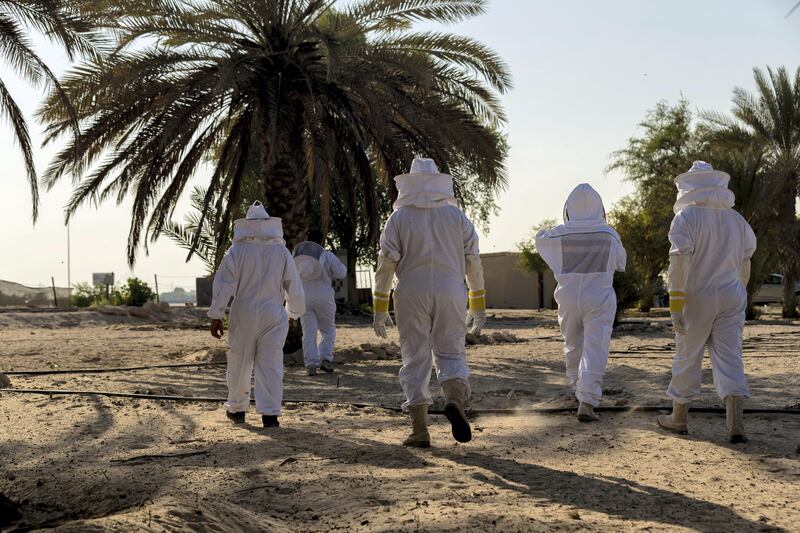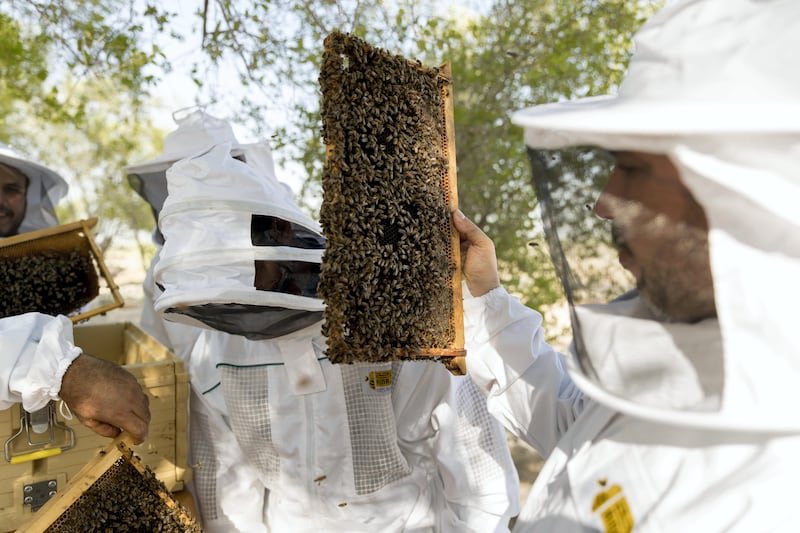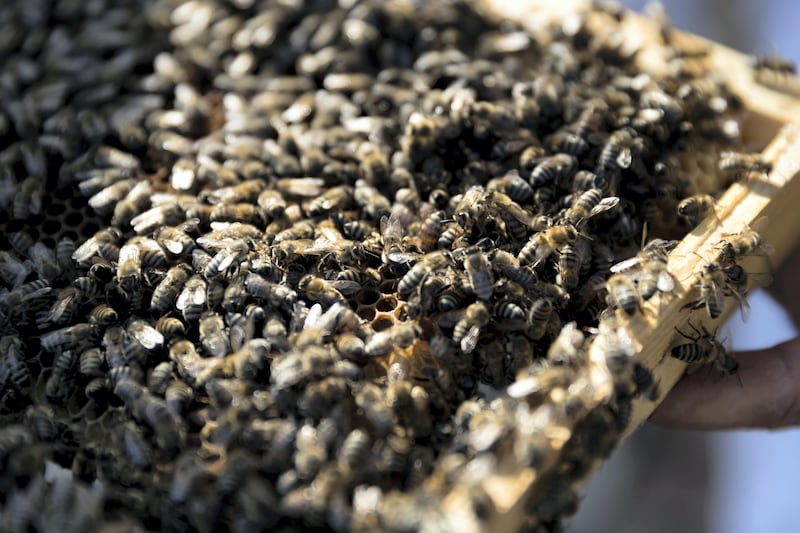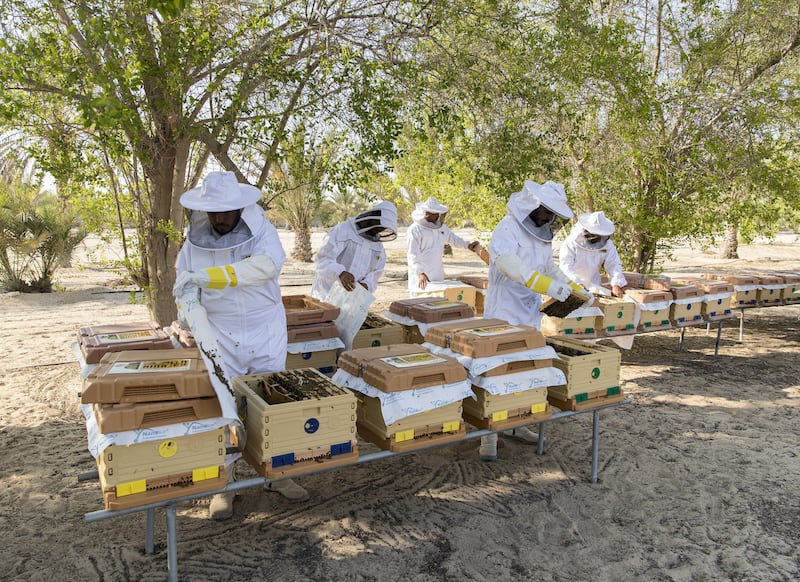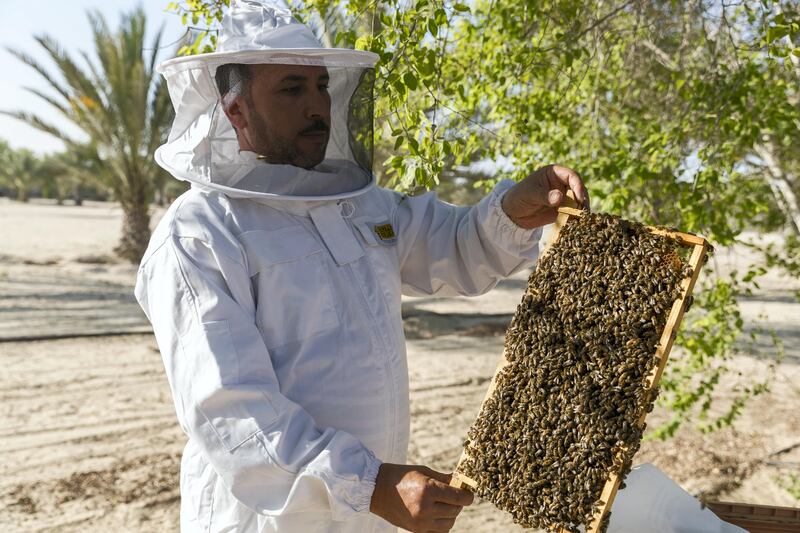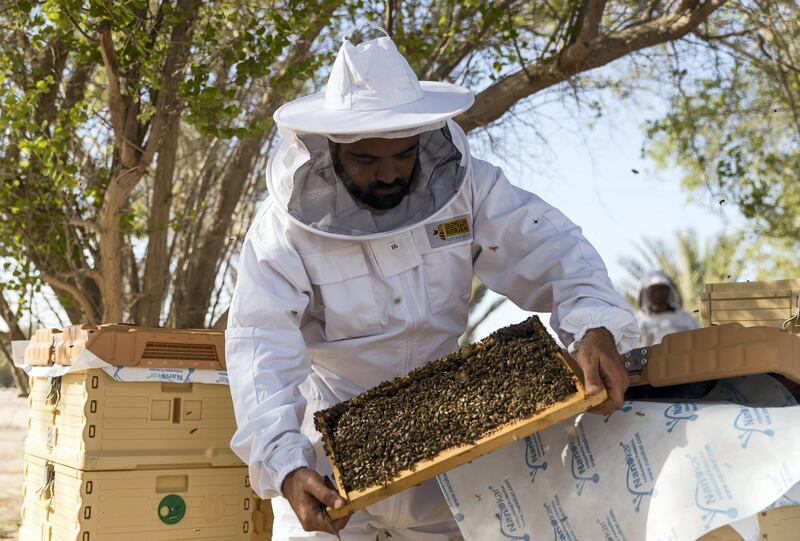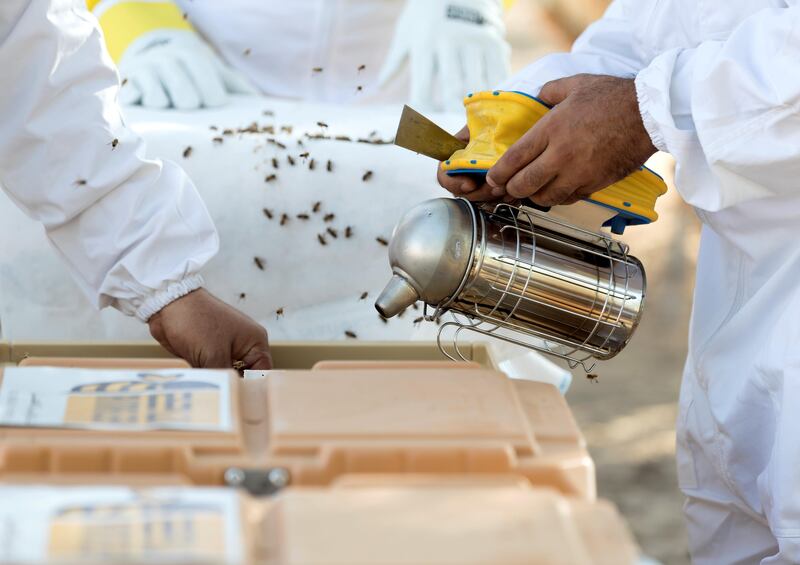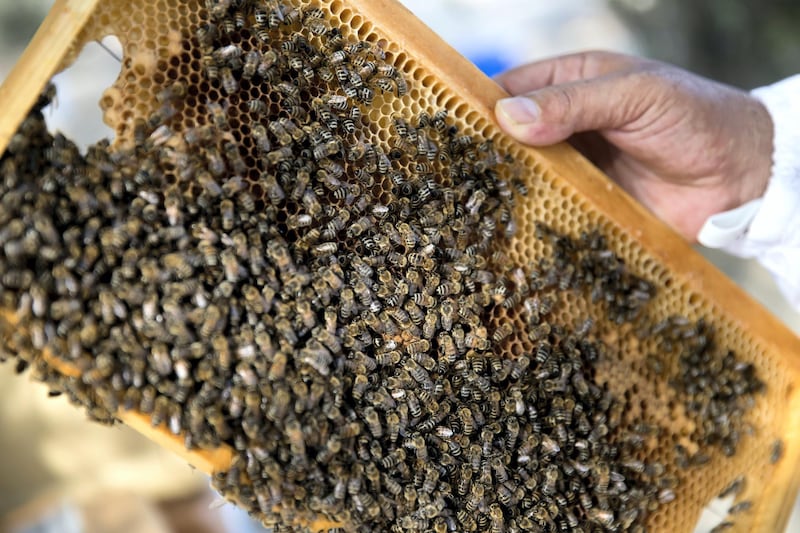Anyone visiting Al Najeh Honey farm adjacent to the sidr tree forest just outside of Abu Dhabi may be fooled into believing it is a small operation.
The apiary, located in a remote desert property surrounded by a rickety barbed wire fence, holds 100 hives, each discreetly stored along the shady trees in locked plastic chests filled with trays of honeycombs guarded by thousands of bees.
“See, this is a good sign,” owner Mohammed Al Najeh said as he lifted a tray from an open chest with his bare hands and flicked it, sending golden drops of honey spraying into the air and spinning the bees into a frenzy. “It is raining nectar – so it means the bees are working fine in that collective.”
The Abu Dhabi apiary is the smallest among the 100 bee farms that Mr Al Najeh owns and operates throughout Egypt, Saudi and the UAE, mostly in the Northern Emirates near Al Dhaid. And while his honey fetches up to US$100 (Dh370) per kilogramme – about 10 times the average wholesale price – it’s his bee-trading business that has attracted international attention.
“I’ve been to every continent and I have been in a lot of countries and his operation is the likes of which I have never seen before and I’m unlikely to see again in my lifetime,” said Philip McCabe, president of the International Federation of Beekeepers' Associations. “There are plenty of people who do what he does, but none at the scale that he does it at.”
Al Najeh Honey began as a small trading shop in Sharjah 26 years ago when Mr Al Najeh’s father, Najeh Salama Khafagy, moved to the UAE from Egypt to sell raw honey stored in bottles of Vimto.
Mr Al Najeh, an academically trained civil engineer, followed his father’s footsteps into the honey trading business with the goal of taking the company and the industry in the UAE up a notch, he said.
“The beekeeping here was too traditional,” he said. “But 10 years ago, I had the dream. I said, I don’t like the way of beekeeping – it’s too random and, when I started, I tried to do something for this industry to take it to another level.”
He reached out to international suppliers to source the best and most modern beekeeping equipment, feeds and treatment, and scouted breeders for the hardiest queen bees to raise in the desert. His imports and healthy hives caught the attention of apiarists throughout the Mena region.
“We are here speaking about expert management,” said Mr Al Najeh. “With expert management, we can produce 10 kilograms of this honey for one hive. This is a very big number for the Middle East, usually in the Middle East, it’s two kilograms, three kilograms. But with our way of beekeeping, our standards, we can because, you know, the bees, when they are healthier, they produce more.”
Last year, the company made headlines when it invited the media to chronicle the arrival of a cargo plane filled with 60 million honeybees it imported from Egypt. In September of this year, the shipments began arriving again, just in time for the honey harvest during the cooler months of the year.
Mr Al Najeh said he entered the bee-shipping business after losing livestock with a cargo company that was inexperienced handling live honeybees. Now, Al Najeh Honey has grown to be the largest bee supplier using airfreight in the world, moving about 4.8 billion bees between Egypt, UAE, Oman, Sudan and Saudi Arabia. His company now also breeds and sells Saskatraz, Italian and Carniolan queen bees, which are sought after by apiaries throughout Mena.
_______________
Read more:
[ First licensed UAE Beekeepers Association launches in Dubai ]
[ Honey in the UAE: where it comes from, how to use it, and the benefits ]
[ To bee or not to bee: why we should value the humble honeymakers ]
_______________
"We did three shipments from the UAE to Sudan last month," said Mr Al Najeh said of his Saskatraz bees. "Can you imagine – the desert is supplying bees to the Nile? With their resources, they couldn't sustain the bees, and for us, without any resources, we sustain the bees."
Mr McCabe, president of Apimondia, said he was astonished when he witnessed the mass shipment for himself last year.
“The scale of what’s happening over there is on a different league than what we have experienced anywhere else in the world,” said Mr McCabe. “In fact, if somebody had told me this, I would hardly have believed it myself -- a cargo plane arrived in a cargo airport near Dubai and this airplane arrived from Egypt Air, and with something like 6,000 packaged bees – these are boxes of bees, live bees covered in nets in the airplane. The plane was full of bees. Outside there was about I’d say close to 100 beekeepers there to select their bees. The scale of it is enormous.”
Al Najeh honey has only been available to an exclusive clientele of royal family members and competitive race horse owners. But Mr Al Najeh said he is in the process of expanding the company to sell retail organic products such as sidr, samar and talh honey, cosmetics, confectionery and candles under the brand "The Hive," which will launch at Global Village this year.
“We are beekepers and this is our passion,” said Mr Al Najeh. “We are like the ambassadors to connect the Middle East with the world. We are the connection, and now we are expanding.”
Zahira Nedjraoui, president of the UAE Beekeepers Association, said before Mr Al Najeh came along, the apiary industry in the country was an unregulated free-for-all.
“There was absolutely no regulation about the imports of bees and there was no – they wouldn’t know what to do with bees basically,” said Ms Nedjraoui. “So he worked closely with the ministries to create all these regulations.
“Beekeepers here are using very rudimentary beekeeping practices, like very traditional beekeeping, while Mohammed is bringing new technology to the UAE, very advanced. He’s at the forefront of what’s going on. He’s really changing the landscaping of beekeeping.”
